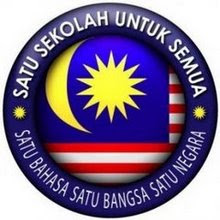Newsline: broadcast over Radio Singapore International on 12 May 2008 2005hrs
Malaysian Prime Minister, Abdullah Badawi has said he will be spending more on fuel subsidies than on major development projects. Mr. Abdullah said the government would spend 45 billion ringgit on fuel subsidies this year to help ease the burden on Malaysians amid soaring energy and food prices. To help fund these subsidies, he is planning to pull back expenditure on all major projects.
Reacting to the announcement, former Prime Minister Mahathir Mohamad has urged the Malaysian leader not to take a populist position, but instead work out how to overcome the current energy and food security issues. How will this affect the country’s development? A question Saifulbahri Ismail asked Dr Denis Hew, senior fellow at the Institute of South East Asian Studies or ISEAS in Singapore.
Denis Hew: “It’s a major setback in terms of development plans, of course as you know we’re in the middle of the 9th Malaysian Plan, which includes of course developing all these economic corridors, the Iskandar Development region, the Northern region as well. So, if parts of these funds are now being allocated for increase subsidies on fuel and food, then of course a lot of these projects will be delayed. I think this is a little worrying because as you know we’re actually concerned about losing our economic competitiveness to countries like China and also India. Many of these projects are meant to enhance our economic competitiveness you see, so I think this is something of a setback.”
Saifulbahri Ismail: “How will cutting back on major projects affect Malaysia’s economic competitiveness in the short, medium and long term? To what extent do you think this will also have an impact on foreign investments into the country and the economic growth of Malaysia?”
Denis Hew: “This year’s economic growth to be honest will be very much like many of our neighboring countries which are very open. It will be mainly affected by external factors. As we know the US is in recession, we also have high oil prices which will affect the economic growth in the developed countries, and since Malaysia is a very open economy, I mean trade is 100 % of GDP, they will mainly be affected by these events. My main concern is that when you look at projects, development projects like the 9th Malaysian plan, these are medium to longer term projects and you need to work on these projects now rather than delay them because it will affect the medium and longer tern economic competitiveness of the country. But for this year, to be honest most of the factors that will affect the growth, and certainly Malaysia’s growth will slow down like many of its neighbors, it will mainly due to external factors particularly the US economy.”
Saifulbahri Ismail: “With global oil prices reaching US$124 a barrel, the impact on Malaysians would be huge. Now how do you think Malaysia can overcome this current energy and food security issues without compromising on national development plans?”
Denis Hew: “Well raising the subsidies is kind of a stop gap measure to provide some relief to Malaysians particularly those who are low income families and households, but you know in the longer term this is not going to directly deal with the whole issue of food security. There have been a number of studies being done by the UN on food security and there are issues more related to production of food, say rice and also distribution and improving the efficiency of food. These are things that need to be tackled which are perhaps more important and also at the ASEAN level, two of our member countries of ASEAN are the major producers of rice, Vietnam and Thailand. So, I think there needs to be a regional mechanism as well, to deal with food security. So, it’s just not a national issue, just concerning Malaysia. It’s a factor that affects the entire region of South East Asia.”
Saifulbahri Ismail: “Due to the costlier price of food, Malaysia’s annual inflation hit a 13-month high of 2.8 percent in March. The government is expected to unveil an anti-inflation plan. Now, what kind of measures can we expect from the cabinet’s anti-inflation committee?”
Denis Hew: “I’m not privy to what plans that they have in terms of fighting inflation, but I guess some of the things that normally is done in terms of monetary policy is to move towards raising interest rates. At the moment I think interest rates have been fairly flat and they’ve not raised interest rates but a standard monetary policy that people would use to try to fight to fight inflation in Malaysia is of course is to raise interest rates. Of course, the other thing is you’re seeing also a gradual appreciation of the ringgit against major currencies like the US dollar, the Euro and others. These are things which will also play a role because it reduces the amount of imported inflation.”
Comments from cafe towkay: These words are assuring. Much have been done by the government to ease the burden of the consumers and the public at large. Considering the last election results which have changed the Malaysian political, economic and social landscape, the government seems to be taking the right steps. However, the cooperation of everyone are needed to ensure the plans work and the inflation rate remains. If these plans failed, I hate to see my customers miffed when a cup of kopitiam would cost them more. So lets throw our support to the government plans.
Subscribe to:
Post Comments (Atom)






No comments:
Post a Comment